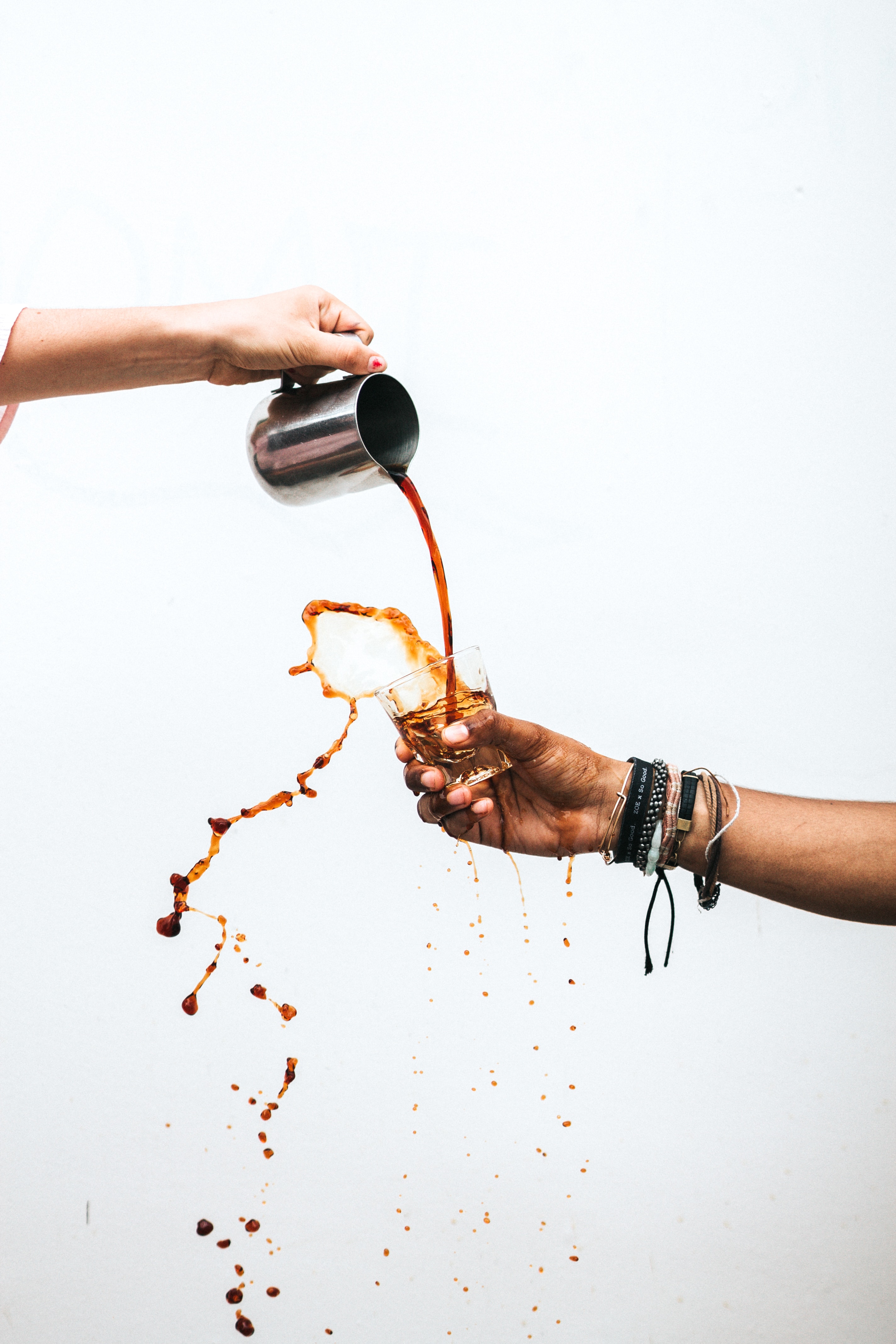

Intermittent fasting (IF) is a pattern of fasting and eating over a defined time period ⏰. There are many different types of fasting that you can do to suit your lifestyle.
There are two parts to intermittent fasting : feeding window (eating) and fasting window (not eating). IF is not defined by certain foods, but we always recommend low carb during times of eating.
By definition, fasting is when you refrain form eating or drinking any calories. Many people use fasting for specific health benefits — autophagy (cell turnover), ketosis, fat burning and insulin sensitivity. Despite what you may think, fasting is not about dehydration and starvation. There are certain drinks and food you can consume that mimic the fasted state, and allow associated benefits to occur.
Below is a run through of 8 different foods and drinks you can consume during a fast to help you reach your health goals.
Plain water 💧is one of the best options to drink during a fast. It will keep you hydrated and doesn't have an enzymic effect. For the fasting purists, anything that causes an enzymic effect will break a fast — for more information, check out Dr. Ronda Patrick. Water is also a great tool for banishing hunger pangs — it will fill up your tummy.
Stick to still or sparkling water. To add flavour, you can infuse it with slices of lemon, berries, cucumber or a cold tea infusions.
It's important to keep hydrated during a fast, so aim to drink between 1-3 litres of water a day.
Tea provides great comfort and can be enjoyed in copious amounts while you fast. Feeling colder than normal while fasting is normal. Tea will keep you warm and make you feel full, without the caffeine hit you normally get from coffee.
Drink herbal, black, oolong, green and white tea, without anything added. Please be aware that tannins in tea can cause nausea if you drink them on an empty stomach. You may need to shop around to find one that agrees with you.
Yes, coffee is on the list *unified sigh of relief! Coffee is an effective appetite suppressant and can be used as a meal replacement for breakfast or lunch. Research has even shown that coffee consumption can increase ketone production and regulate blood glucose, which enhances metabolic health.
However, some people are particularly sensitive to caffeine and it can raise blood glucose levels — sadly I'm one of those individuals, so I avoid it.
Drinking coffee on an empty stomach can make you more sensitive to caffeine, so you may experience acid reflux, upset stomach, anxiety, the jitters or sleepless nights. If you're nodding along to this, then try to avoid coffee or use swiss water decaffeinated coffee.
Drink black coffee, without anything added, and limit consumption to earlier in the day so it doesn't disrupt your sleep.
Bulletproofing is a brilliant technique to ramp up your morning cuppa with added fats like butter, coconut oil, MCT oil and ghee. Creamy, delicious and full of healthy fats, this beverage will stave off hunger for hours, helping you reach your fasting goal.
There are mixed opinions as to whether or not bulletproof coffee maintains a fasting state. A bulletproof coffee contains many calories, and some argue that this would break a fast. However, these calories come from fat, and fat does not raise blood glucose or insulin — unlike protein and carbohydrates. In theory, this should not kick you out of ketosis or halt autophagy. If adding fat to your coffee means that you prolong fasting, or find it easier, then I would say, roll with that.
Apple cider vinegar is loaded with health properties — boost healthy gut microbiome, aids digestion, improves insulin sensitivity, lowers blood glucose and increases satiety. Apple cider vinegar is mostly made up of water, acetic acid and gut loving probiotics. It has a very minor calorie content and won't break your fast.
Apple cider vinegar will help mute cravings and quench thirst. Dilute 1-2 tablespoons in still or sparkling water, and enjoy!
Bone broth is a rich source of minerals, and will help replenish electrolytes, which are normally lost during a fast. It is also a great source of collagen, which will restore and repair the gut lining.
Bone broth contains protein, which can cause an insulin spike and break a fast. However, the calorie content is considerably low, so it will keep you in ketosis. Similarly with bulletproof coffee, if drinking bone broth means that you prolong fasting, or find it easier, then I would say, roll with that. It will help you repair insulin sensitivity, which is the ultimate goal!
Use homemade bone broth only, to avoid additives and fillers. Here's a recipe!
Electrolyte loss is a common and normal response during intermittent fasting. As a result, you may experience dry mouth and thirst, despite your effort of drinking gallons of water.
Salt is a great way to replenish electrolytes, cleanse the palate and dampen hunger. Use a small bit at a time, a few dabs on your tongue, and let it work its magic — in no time, hunger will vanish, along with that horrible coating in the mouth.
Avoid using artificial sweeteners. Some people can tolerate natural sweeteners like stevia, monkfruit and erythritol, without it causing cravings or raising insulin levels. If you tolerate natural sweeteners, then you could use these sparingly in water, tea or coffee.
No matter where you are in your fasting journey, don't be hard on yourself if you don't reach your fasting goal. Some days will be easier than others. Use this list to help you get through more challenging fasts and possible break some PBs!
Like what you’re hearing?
Take care 👋
Rachel
I’m sure you’re curious about the science behind all this 🔬 Here are some recent medical publications about this topic:
https://www.nejm.org/doi/full/10.1056/NEJMra1905136
https://www.ncbi.nlm.nih.gov/pubmed/28177691
https://care.diabetesjournals.org/content/27/1/281.long
https://care.diabetesjournals.org/content/30/11/2814.full
https://www.ncbi.nlm.nih.gov/pubmed/16015276